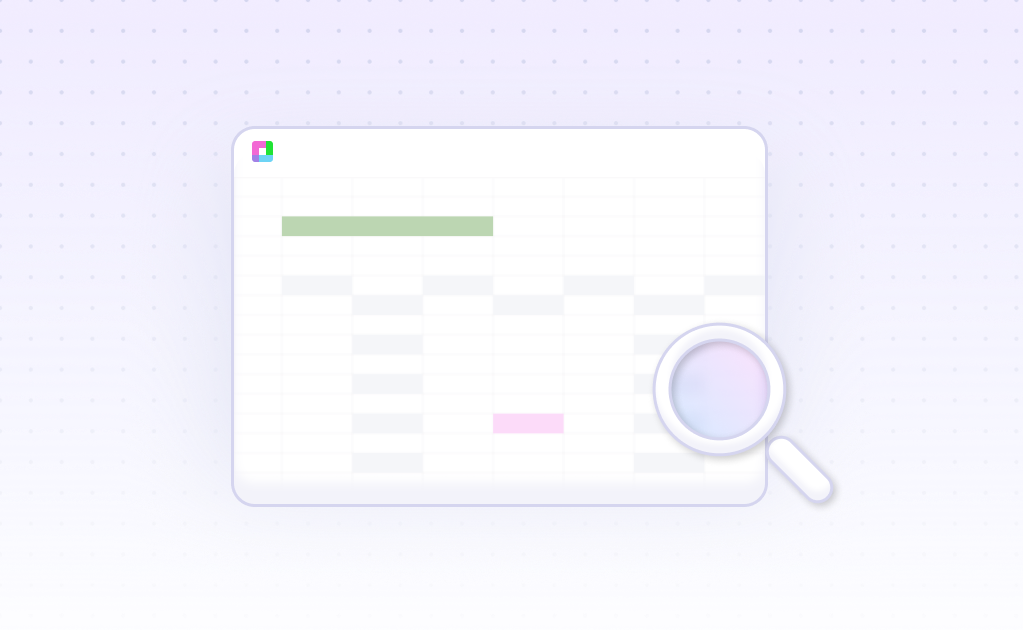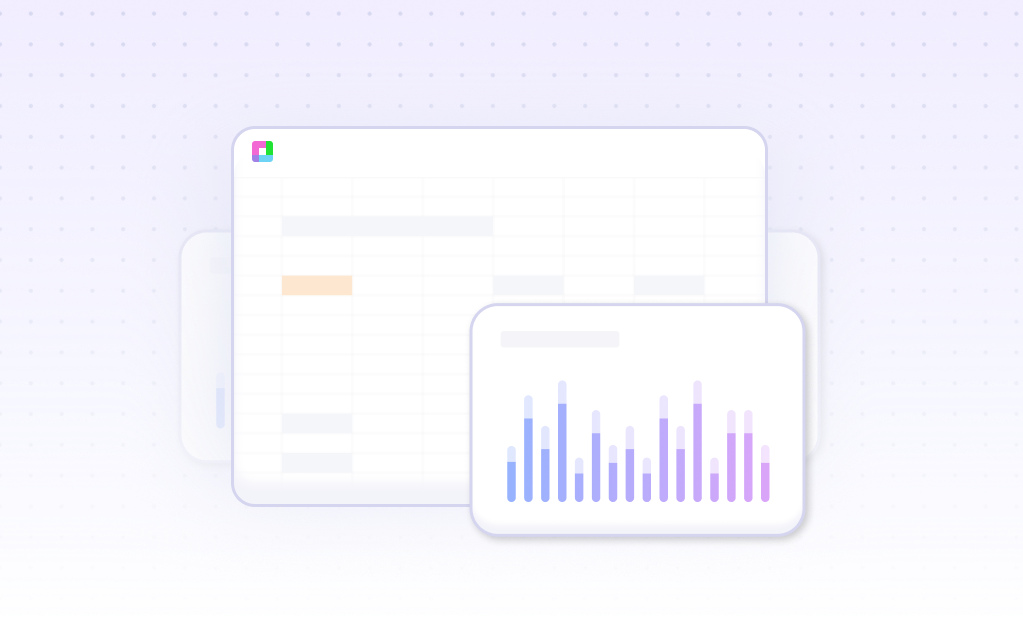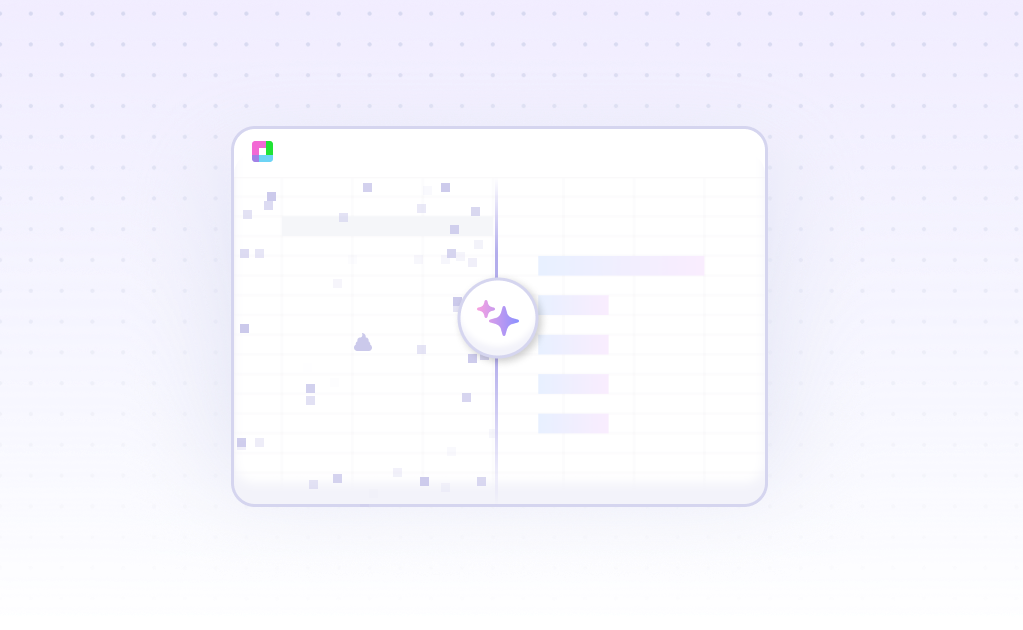
Introduction
Applied behavioral analysis (ABA) helps track and improve student behavior through data-driven insights. Traditional ABA analysis in Excel requires complex graphing templates for charting progress, accommodating various shapes, phase lines, and project tracking. These templates support both flat and variable goals needed for scholarly journal submissions.
Sourcetable revolutionizes behavioral analysis by combining AI-driven automation with spreadsheet functionality. This platform generates formulas, creates charts automatically, and cleans data without requiring Excel expertise. With SQL and Python integration, Sourcetable enables advanced data analysis while supporting voice-driven interactions.
Using SHAP values, Sourcetable's AI capabilities help explain decision-making patterns and identify potential errors in behavioral analysis models. Discover how to streamline your ABA workflow with Sourcetable's AI-powered tools at sourcetable.com/signup.
Why Sourcetable Excels for Applied Behavioral Analysis
Sourcetable transforms applied behavioral analysis through advanced data integration and real-time visualization capabilities. Unlike Excel, Sourcetable supports unlimited data connections across platforms like Facebook, Google, Zendesk, and Amazon, enabling comprehensive behavioral tracking and analysis.
The platform's advanced functions, formulas, and filters streamline complex behavioral data analysis workflows. Real-time dashboard updates and live charts allow analysts to monitor behavioral patterns as they emerge, a critical advantage over Excel's static reporting.
Data Integration & Analysis Capabilities
Sourcetable's comprehensive analytics features support multiple use cases across sales, marketing, finance, and behavioral analysis. The platform seamlessly integrates with Airtable and Ahrefs, allowing analysts to combine behavioral data from multiple sources for deeper insights.
By offering real-time visualization and unlimited data integrations, Sourcetable enables behavioral analysts to track, measure, and analyze interventions more effectively than Excel's limited connectivity options. This integrated approach ensures more accurate and timely behavioral assessments.
Benefits of Applied Behavioral Analysis with AI-Powered Spreadsheets
Applied Behavioral Analysis (ABA) delivers significant benefits for individuals with autism. Studies show ABA improves social interactions, communication, and expressive language skills. Intensive ABA therapy exceeding 20 hours weekly produces substantial developmental gains and may reduce future special service requirements.
Enhanced Analysis with AI Spreadsheet Tools
AI-powered spreadsheet automation streamlines behavioral data management through automated data entry, cleaning, and formatting. Advanced analytics reveal hidden patterns in behavioral data, enabling more effective ABA implementation and progress tracking.
Types of Applied Behavioral Analysis with Sourcetable
Applied behavioral analysis (ABA) techniques can be effectively implemented using AI-powered spreadsheets across multiple settings, from homes to schools. Sourcetable enables evidence-based ABA practices suitable for all age groups, from early childhood through adulthood.
Time Series and Trend Analysis
Sourcetable facilitates behavioral tracking over time, allowing practitioners to analyze patterns and trends in client responses. This data-driven approach helps customize treatments to each individual's unique needs.
Sentiment and Emotion Analysis
Advanced sentiment analysis capabilities enable tracking emotional responses and behavioral changes through text-based data. This feature helps measure progress and adjust treatment approaches based on quantifiable feedback.
Predictive Behavioral Analysis
Historical data analysis combined with AI-powered predictions helps forecast behavioral patterns and treatment outcomes. This automation streamlines data entry and analysis of large behavioral datasets.
Cohort and Cluster Analysis
Behavioral data can be segmented and analyzed across different groups, enabling practitioners to identify patterns and adapt treatment strategies based on demonstrated effectiveness within similar cohorts.
Use Cases for Applied Behavioral Analysis with Sourcetable
Automated Graph Creation and Analysis |
Pool behavioral data from multiple studies into Sourcetable to automatically generate ABA graphs. Use AI tools to analyze patterns and create visualizations that reflect ABA methodologies while saving time on manual graph creation. |
Machine Learning for ASD Assessment |
Aggregate assessment data across studies to identify key predictors of ASD. Use Sourcetable's AI capabilities to analyze motor movements and behavioral patterns that indicate ASD, improving diagnostic accuracy through larger sample sizes. |
Behavior Detection and Classification |
Import data from wearable sensors and video recordings to detect and quantify behaviors. Use Sourcetable's machine learning tools to automatically classify self-injurious behaviors, motor stereotypy, and vocal stereotypy across multiple datasets. |
Treatment Outcome Analysis |
Combine data from multiple treatment programs to analyze intervention effectiveness. Use Sourcetable's AI to identify patterns in treatment intensity and duration effects on learning outcomes for children with autism, leveraging increased sample heterogeneity to test hypotheses across different groups. |
Frequently Asked Questions
What is applied behavioral analysis and how can it be used with data?
Applied behavioral analysis combines data science, computer science, and mathematics/statistics to analyze big data from behavioral studies. It allows analysts to identify patterns, develop predictive models, and classify behaviors using techniques like principal component analysis, multiple imputation, and automated data collection.
How can Sourcetable help with behavioral analysis?
Sourcetable streamlines behavioral analysis through AI-powered data analysis that reduces human error. When combined with tools like Ethogramer, it enables efficient behavioral annotation, generates visualizations of behavioral transitions, and makes analysis more informative while freeing up time for higher-value tasks.
What are the key data preprocessing steps needed for behavioral analysis?
Data preprocessing involves three main steps: 1) Data cleaning to fill missing values, smooth noisy data, resolve inconsistencies and remove outliers, 2) Data integration to combine multiple data sources, and 3) Data transformation including binarization and normalization to prepare data for machine learning models.
Conclusion
Excel provides robust tools for applied behavioral analysis, offering templates for tracking student behavior with various shapes, phase lines, and Gantt charts. These templates support both flat and variable goals, making them suitable for scholarly journal submissions.
For a more modern approach, Sourcetable combines AI capabilities with spreadsheet functionality. Its AI copilot automates formula generation, data cleaning, and chart creation - eliminating the need for manual Excel work. The platform integrates with over 100 data sources and allows natural language queries for behavioral data analysis.
Ready to streamline your applied behavioral analysis? Try Sourcetable today and experience the power of AI-driven spreadsheet analysis.
Recommended Analysis Guides
Connect your most-used data sources and tools to Sourcetable for seamless analysis.
Frequently Asked Questions
If your question is not covered here, you can contact our team.
Contact Us




